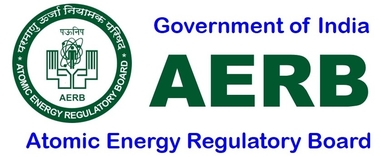Licensing/Consenting
Regulatory "Consent" is used as a global word that includes "Licence", "Authorisation", "Approval", "Registration" and "Certification".
Licensing of NFs involves stage wise consents throughout the lifetime of NFs, namely, siting, Construction, Commissioning, Operation and De-commissioning. These major stages may be further divided into various sub-stages requiring clearances for each sub-stage.
Consenting for Siting
The consent for Siting involves ensuring of the suitability as well as engineer-ability of the proposed site with respect to proposed NF at that site. It includes review of site and proposed NFs interactions (effect of plant on site and effect of site on plant) as well as suitability for implementation of emergency actions. The satisfactory review requires, as applicable, several studies like geotechnical, hydrogeological, radioactive impact assessment, baseline natural background, soil studies, mapping of surrounding areas etc.
Consenting for Construction/Construction Clearance
The consent for construction includes safety review of the design of proposed NF. This involves design review of various systems, plant layout, structures, their design basis, nuclear systems, electrical systems, instrumentation and control systems, safety systems, common services system and waste disposal systems, radiation protection, radioactive waste management aspects, quality assurance etc.
Licensing/Consenting for Commissioning
The commissioning ensures the necessary check on the performance of the design. It provide vital information as to whether the systems designed, located performs in the manner that they are supposed to. AERB ensures that all safety systems and structures are checked and tested according to approved plans. AERB also reviews the commissioning, test reports to satisfy itself about performance of safety systems and structures.
Licence to Operate
After satisfactory commissioning and demonstration for safe operation of NF, ensuring all systems in place, technical as well as administrative, AERB grants licence for operation with stipulated conditions within only which the licensee can operate. The technical and administrative arrangements result in continuous monitoring of NFs and review of various aspects even within the licensed period as a part of safety review and assessment. Among other things, licence has a validity period (typically 5 years) before expiry of which the licensee needs to renew the licence by providing necessary details as specified by AERB.
Consenting for Decommissioning
Decommissioning refers to end of the operating lifetime of NF to retire it from service with due regard for the health and safety of workers and members of the public and the protection of the environment. It implies that no further use of the facility for its existing purpose. It includes dismantling of NF using an approved strategy (immediate or deferred). AERB grants licence for this stage of NF in order to ensure safety of worker, public and environment.







